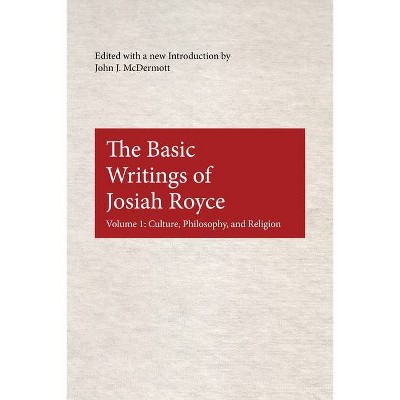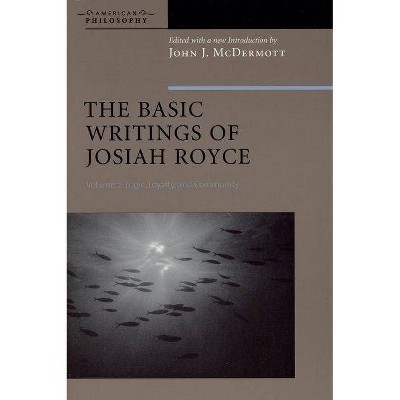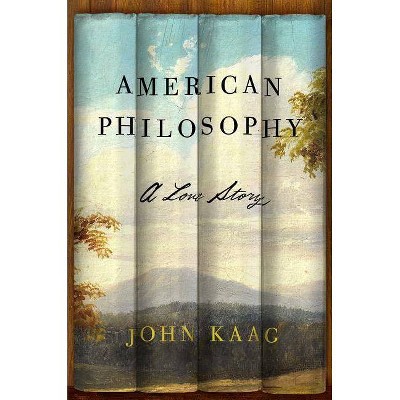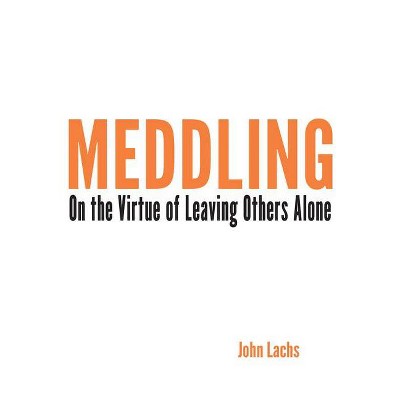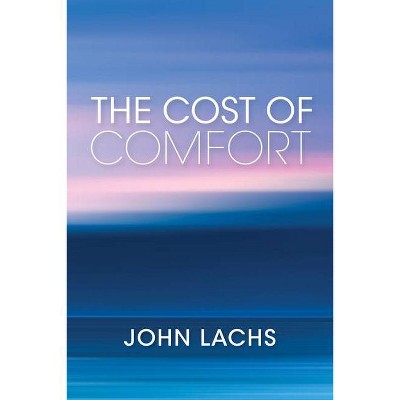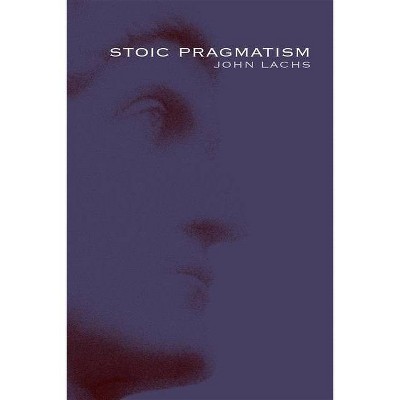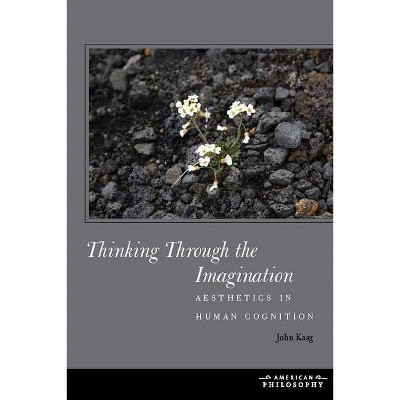The Drama of Possibility - (American Philosophy) by John J McDermott (Paperback)
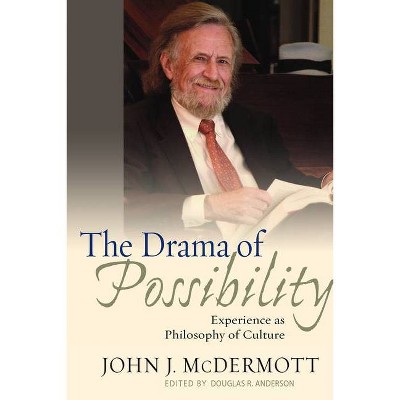
Similar Products
Products of same category from the store
AllProduct info
<p/><br></br><p><b> About the Book </b></p></br></br>This book traces the trajectory of John J. McDermott's philosophical career through a selection of his essays. Many were originally occasional pieces and address specific issues in American thought and culture. Together they constitute a mosaic of McDermott's philosophy, showing it to be rooted in an American conception of experience. Though he draws heavily on the thought of William James and the pragmatists, McDermott has his own unique perspective on philosophy and American life. He presents this to the reader in exquisitely crafted prose. Drawing inspiration from American history, from existentialist themes, and from personal experiences, he offers a dramatic consideration of our cultures failures and successes. McDermott crosses disciplinary boundaries to draw on whatever works to help make sense of the issues with which he is dealing-issues rooted in medical practice, political events, pedagogical habits, and the worlds of the arts. His work thus resists simple categorization. It is precisely this that makes his vibrant prose appealing to so many both inside and outside of the world of American philosophy.<p/><br></br><p><b> Book Synopsis </b></p></br></br><p>This book traces the trajectory of John J. McDermott's philosophical career through a selection of his essays. Many were originally occasional pieces and address specific issues in American thought and culture. Together they constitute a mosaic of McDermott's philosophy, showing its roots in an American conception of experience. Though he draws heavily on the thought of William James and the pragmatists, McDermott has his own unique perspective on philosophy and American life. He presents this to the reader in exquisitely crafted prose. Drawing inspiration from American history, from existentialist themes, and from personal experiences, he offers a dramatic consideration of our culture's failures and successes. <p/>McDermott crosses disciplinary boundaries to draw on whatever works to help make sense of the<br>issues with which he is dealing--issues rooted in medical practice, political events, pedagogical habits, and the worlds of the arts. His work thus resists simple categorization. It is precisely this that makes his vibrant prose appealing to so many both inside and outside the world of American philosophy.</p><p/><br></br><p><b> Review Quotes </b></p></br></br><br>. . . Not only provides an aperture in the philosophical dialogue with Foucault's thought, but it is first and foremost a seminal work in the field of philosophy and the humanities as a whole.-- "--Foucault Studies"<br><br><p>"Fresh and down-to-earth. . . . Reflects a deep and attentive familiarity with the history<br>of thought, as well as a sensitive and penetrating understanding of American history and culture."</p><b>-----Jacqueline Kegley, <i>California State University, Bakersfield</i></b><br><br><p>"McDermott's personal style, beautifully seeded with anecdotes and his own experience, <br>make this book as dramatic as the title."</p><b>-----Peter N. Carroll, <i>Stanford University</i></b><br><br><p>John McDermott's essays help us understand the mind of America by laying <br>bare its heart. In print and in the classroom, McDermott is a great <br>teacher, a marveloulsy sensitive human being and an exemplary <br>American. These essays, some of them legendary, revive and develop the <br>grand achievements of Emerson and James.</p><b>-----John Lachs, <i>Vanderbilt University</i></b><br><br>In the American tradition of Jonathan Edwards, Ralph Waldo Emerson and William James, John J. McDermott is both an original philosopher and a literary figure of distinction.<b>-----Peter H. Hare, <i>State University of New York</i></b><br><br>John J. McDermott's words, spoken or written, fall like torrents or hang like mist as he explores the themes of human experience. His ideas, tinctured with medieval philosophy and snips of baseball, drawing upon his familiarity with the artist's studio and the physician's office, help us to make the connections necessary to celebrate and criticize the diverse aspects of our common journey. Readers of this broad selection of McDermott's writings will recognize his sensitivity to experience and his power as a teacher.<b>-----James Campbell, <i>University of Toledo</i></b><br><br>More than any other current writer, John J. McDermott is widely recognized as the preeminent interpreter and the living bearer of the classical American philosophical tradition--Emerson, James, Royce, Dewey. Combining that tradition with Camusian existentialism, McDermott grabs us by the neck, drags us from the anemic abstractions of the academy, back to the muck of the everyday, and reminds us not only of philosophy's unfathomable power to shatter worlds and to shake us to the very core of our precarious existence, but also of how philosophy nourishes souls and communities. This is a ride, not for the faint of heart, on which McDermott has taken tens-of-thousands of students during his lengendary career and now, thanks to this collection of his most important pieces, masterfully selected and edited by Douglas Anderson, the ride is available to many more. Hop aboard. Your life, and your sense of what it means to philosophize as an American, will never be the same.<b>-----Ken Stikkers, <i>Southern Illinois University</i></b><br><p/><br></br><p><b> About the Author </b></p></br></br><br><strong>JOHN J. MCDERMOTT</strong> is Distinguished Professor of Philosophy at Texas A&M University. His essays have been collected in two earlier volumes: <em>The Culture of Experience: PhilosophicalEssays in the American Grain </em>and <em>Streams of Experience: Reflections on the History and Philosophy of American Culture</em>. He is also the editor of a stream of important editions, including <em>The Basic Writings of Josiah Royce</em>, reissued by Fordham in 2005. <p/><strong>DOUGLAS R. ANDERSON</strong> is Professor of Philosophy at Southern Illinois University at Carbondale. He is the author of <em>Creativity and the Philosophy of C. S. Peirce, Strands of System</em>, and <em>Philosophy Americana: Making Philosophy at Home in American Culture </em>(Fordham). He is editor of the <em>Transactions of</em> <em>the Charles Peirce Society</em>.<br>
Price History
Cheapest price in the interval: 45 on November 8, 2021
Most expensive price in the interval: 45 on December 22, 2021
Price Archive shows prices from various stores, lets you see history and find the cheapest. There is no actual sale on the website. For all support, inquiry and suggestion messagescommunication@pricearchive.us
